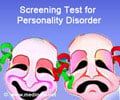Diagnosis and Treatment of Bipolar Disorder
Mood stabilizing medications are usually the first choice to treat bipolar disorder. Treatment with these drugs may continue for years.
Diagnosis of Bipolar Disorder
A diagnosis of bipolar disorder is made based on the history of the patient. A detailed medical history (including a family history) of symptoms is elicited by the doctor. Physical examination and lab tests are also performed to rule out other conditions like thyroid disorders.
It is important to understand that there are no blood tests or brain scans that can point to bipolar disorders.
Treatment of Bipolar Disorder
Though there is no permanent cure for bipolar disorders, treatments that can help people lead normal lives are available.
Medications:
Mood stabilizers: These include lithium and a number of anti-convulsants. Mood stabilizing medications are usually the first choice to treat bipolar disorder. Treatment with these drugs may continue for years.
“Most individuals who have manic depressive illness are normal most of the time; that is, they maintain their reason and their ability to function personally and professionally. Prior to the availability and widespread use of lithium, at least one person in five with manic-depressive illness committed suicide.” Kay Redfield Jamison
Lithium was the first drug developed for the purpose. Lithium has saved the life of many patients with this disorder. It is highly effective but must be used with caution under medical supervision so as to avoid side effects (for e.g. Aggravation of conditions like hypothyroidism, acne, psoriasis). Common adverse effects include: fine tremor, fasciculation (muscular twitching), nausea, diarrhea, polyuria (increased urination), polydipsia (increased thirst), and weight gain. Lithium if used incorrectly can cause severe toxicity.
Anti-convulsants (drugs normally used to treat convulsions/seizures) act as mood stabilizers: These include drugs like valproate, carbamazepine, and lamotrigine.
A category of drugs called antipsychotics is also used. It includes ones like risperidone, olanzapine, quetiapine, ziprasidone, and aripiprazole.
Most of these drugs are associated with side effects on long term use, and hence should always be taken as advised by your doctor.
Psychotherapy
Education and psychotherapy are highly effective methods that help people to tackle bipolar disorder. Individual therapy and group therapy let people learn to cope with difficulties. A technique known as Cognitive Behavioral Therapy (CBT) is known to be effective.
Counselling is offered to people to avoid stimulant drugs and alcohol, to minimize sleep deprivation. People should also be taught to recognize early signs of relapse.
Apart from the mentioned modalities, techniques like electroconvulsive therapy (ECT), Transcranial magnetic stimulation (TMS) are used when required. ECT was formerly known as ‘shock therapy’.













